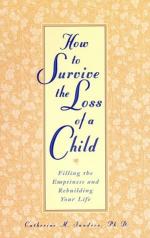|
This section contains 10,041 words (approx. 34 pages at 300 words per page) |

|
SOURCE: "Death By Water," in ELH, Vol. 34, No. 1, March, 1967, pp. 116-40.
In the following essay, Perloff surveys the development of Lowell's elegies from bitter reflections on the death of the New England Puritan tradition to meditative pieces on the subject of human mortality.
. . . the earthbound event which meant most to the Puritan was death. His life was harder than that of most men of his time; as a pioneer, he was2 overbearingly aware of the dangers to body and soul of his enterprise. . . . His most important poems are called forth by the ever-threatening imminence of death. These poems are elegies—lengthy, discursive and elevated—most often on the death of good men and powerful. . . . For the occasion of a death, the point just before the final proof of election or damnation, gave the Puritan poet his greatest opportunity. Now a man newly dead would really know. And the...
|
This section contains 10,041 words (approx. 34 pages at 300 words per page) |

|


